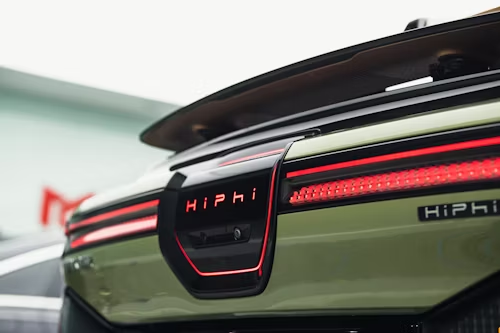The Future of Smart Cars: How Technology is Revolutionizing Vehicles

The automotive industry is in the midst of a technological revolution, with artificial intelligence (AI), automation, and the Internet of Things (IoT) playing pivotal roles in transforming modern vehicles. From self-driving capabilities to enhanced safety and real-time connectivity, smart cars are reshaping transportation as we know it.
1. The Role of AI in Smart Cars
Artificial intelligence is the backbone of modern smart vehicles, enabling advanced decision-making, real-time data analysis, and autonomous control systems.
- Autonomous Driving: AI-powered self-driving vehicles can navigate traffic, detect road hazards, and make split-second decisions.
- Predictive Maintenance: AI detects patterns in vehicle performance, alerting owners to potential mechanical issues before they become costly repairs.
- AI-Powered Assistants: Integrated virtual assistants respond to voice commands, adjusting temperature, navigation, and media preferences.
How Smartcar Conversions Helps: Smartcar Conversions integrates AI solutions into vehicles, making them more efficient and user-friendly.
2. The Impact of IoT on Vehicle Connectivity
The Internet of Things (IoT) is revolutionizing how vehicles interact with their surroundings, creating a network of connected devices that improve safety and efficiency.
- V2V (Vehicle-to-Vehicle) Communication: Cars share real-time data with nearby vehicles to prevent collisions and improve traffic flow.
- V2I (Vehicle-to-Infrastructure) Integration: Smart road systems communicate with vehicles, optimizing routes and traffic signals.
- Remote Diagnostics & Over-the-Air Updates: IoT enables real-time monitoring of vehicle health and automatic software updates.
3. Automation and Safety Enhancements
Automated technologies are improving road safety and making driving more convenient.
- Advanced Driver Assistance Systems (ADAS): Features such as lane-keeping assist and adaptive cruise control reduce driver workload.
- Collision Prevention Systems: Smart sensors detect potential collisions and apply emergency braking when necessary.
- Automated Parking: AI-driven systems assist with parallel and perpendicular parking.
4. Smart Car Case Studies
Real-world examples demonstrate the impact of smart vehicle technology.
Case Study 1: Smartcar Conversions implemented AI-powered navigation, cutting travel time by 20%.
Case Study 2: A logistics company integrated IoT-based vehicle tracking, reducing fuel consumption by 15%.
Case Study 3: A ride-sharing service deployed smart traffic analytics, reducing trip delays by 25%.
5. The Future of Smart Cars
Emerging technologies are shaping the next generation of smart vehicles.
- Fully Autonomous Vehicles: Self-driving cars will revolutionize transportation, making commuting more efficient and reducing traffic accidents.
- Green Technology & Energy Efficiency: AI-driven battery optimization in electric vehicles will improve sustainability.
- Personalized Driving Experiences: Smart vehicles will adapt settings based on driver behavior and preferences.
6. Challenges Facing Smart Car Technology
Despite advancements, several obstacles remain before full adoption.
- Regulatory Barriers: Self-driving cars must navigate complex legal frameworks before mass deployment.
- Cybersecurity Risks: Connected cars are vulnerable to hacking, requiring robust security protocols.
- Cost of Implementation: The high price of AI and IoT integration limits widespread adoption.
Final Thoughts
Smart cars are the future of transportation, driven by AI, IoT, and automation. As technology advances, vehicles will become safer, more efficient, and more connected.
Discover how smart car technology can enhance your driving experience with Smartcar Conversions.








